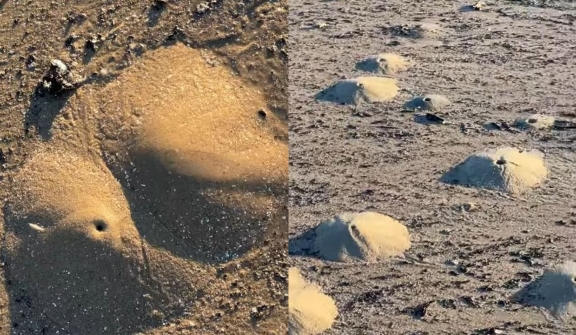
Staff at Uintana Beach County Park shared a video, which showed sand mounds appearing along Quintana Beach County Park.
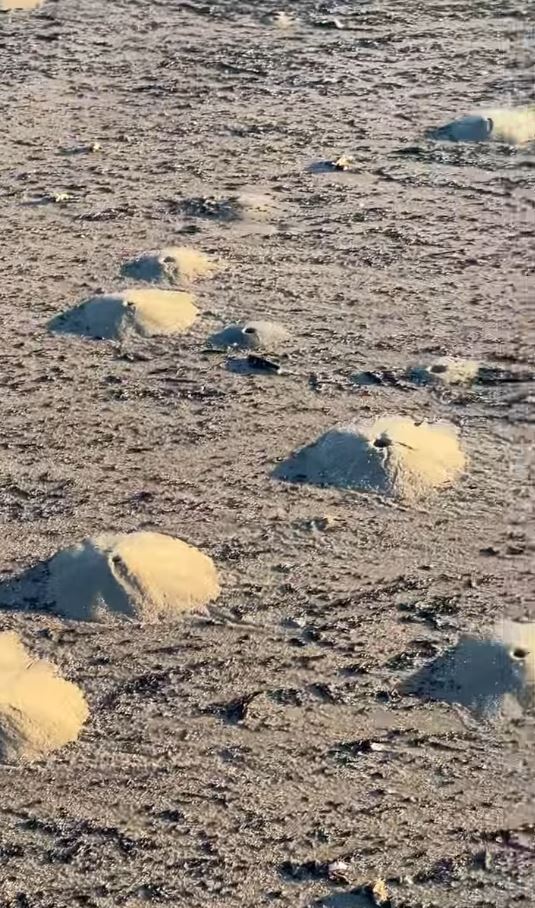
The post was shared on Facebook and has the caption:
We are experiencing an extremely low tide this morning, and ghost shrimp are creating mini volcanoes all over the beach. Ghost shrimp are 3 to 4 inches long and can dig burrows 4 feet deep. They are an important part of intertidal ecosystems because they drive oxygen into the sand as they burrow, which helps organic matter decompose, enriching the sediment and ultimately providing food for more creatures.
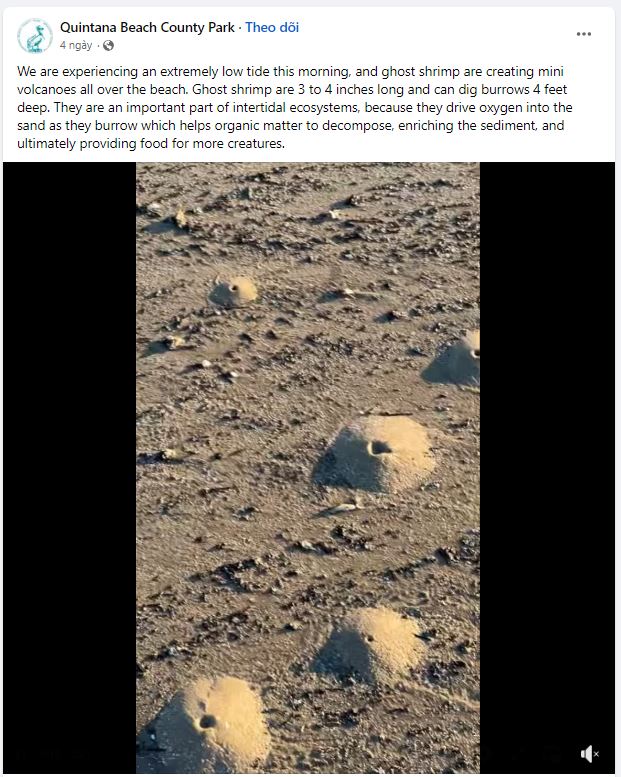
The staff members explained that the "very low tide" was the reason behind the appearance of these tiny volcanoes, which were constructed by ghost shrimp.
Additionally, they claimed that mounds appear to play an important role in the ocean's ecosystem.
The staff explained: “We are experiencing an extremely low tide this morning, and ghost shrimp are creating mini volcanoes all over the beach."
The shrimp appear when the tide is low. It pushes oxygen into the sediment, and they can survive for up to six days without it.
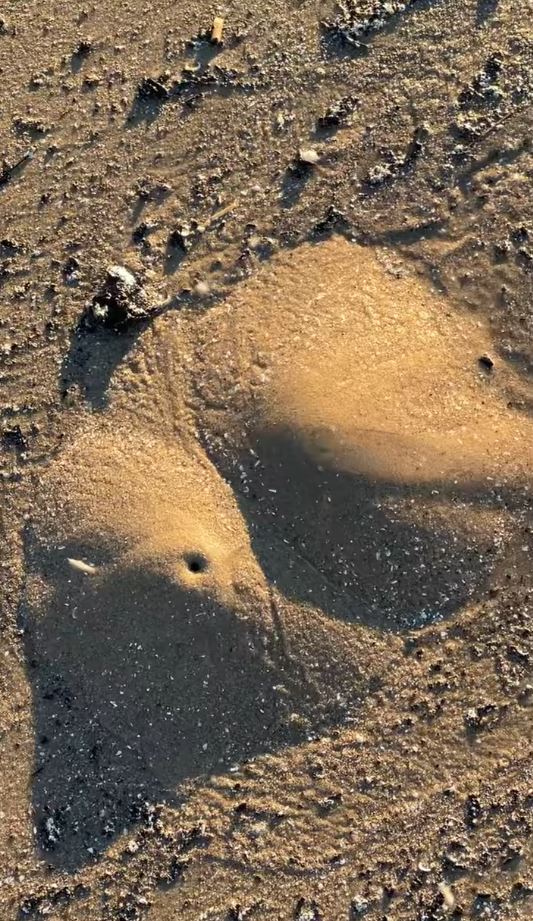
According to the staff, shrimp not only play an essential role in intertidal ecosystems by driving oxygen into the sand, which helps organic matter decompose, but also provide food for other creatures.
Besides being spotted along Texas Beach, ghost shrimp are also kept in freshwater aquariums as pets
According to Quintana Beach County Park staff, the tiny crustaceans are most often seen burrowing into the seafloor sediments and collecting bits of food.
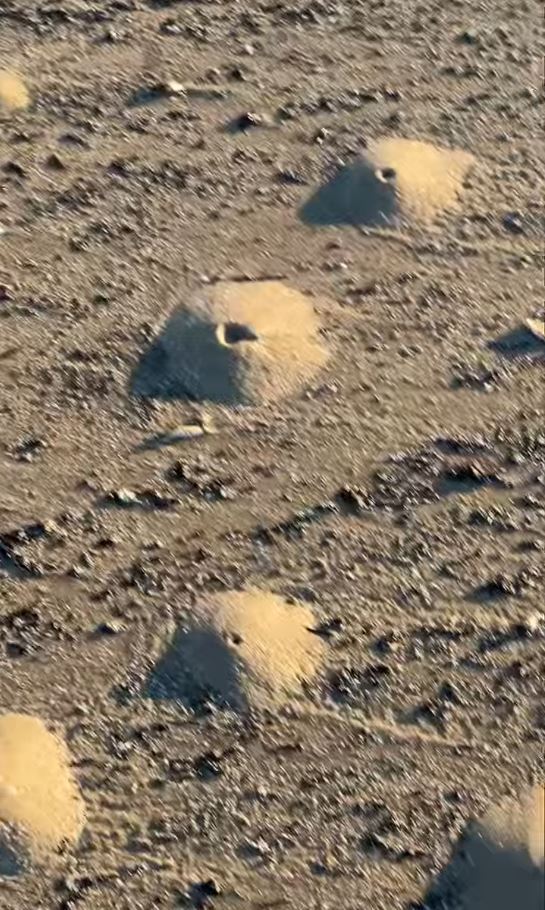
The video showed the numerous mini-volcanoes scattered across the beach, each with a tiny hole at the top of them.
Ghost shrimp, or transparent shrimp, are commonly found along the water's edge before they embark on their burrowing endeavors into the sandy substrate to find food.
They're known for their ability to burrow deep into seafloor sediment and create intriguing sand formations during their activities.




